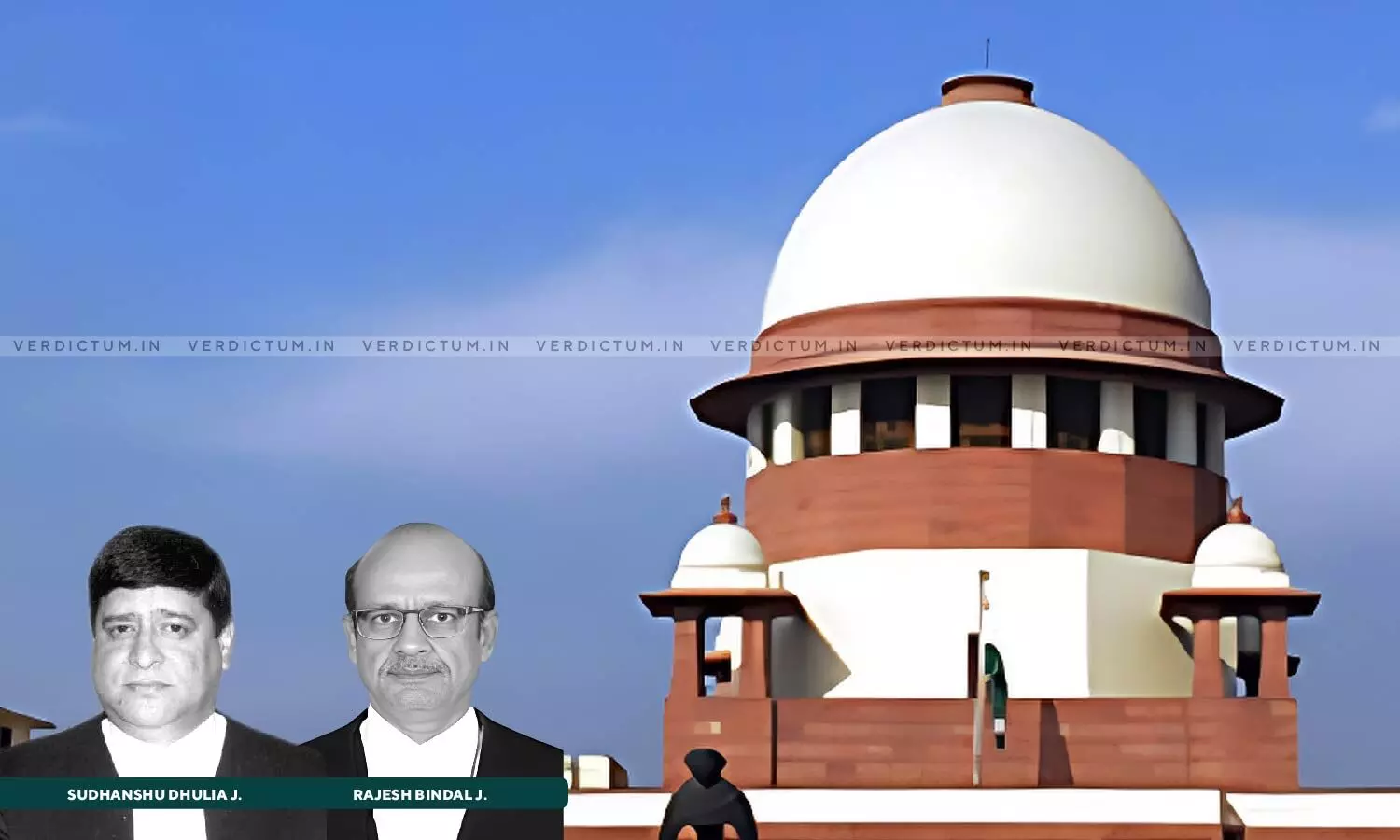
Mere Provocation Not Enough To Reduce Crime From Murder To Culpable Homicide Not Amounting To Murder: SC
 |
|The Supreme Court upheld the conviction of a police guard who was accused of killing a man inside the police station, while he was on his duty.
The Court was deciding a criminal appeal filed against the order of the High Court by which the conviction and sentence was upheld for the offences under Sections 302 and 307 of the Indian Penal Code (IPC).
The two-Judge Bench comprising Justice Sudhanshu Dhulia and Justice Rajesh Bindal observed, “This court has reiterated in more than one cases right from K.M. Nanavati v. State of Maharashtra AIR 1962 SC 605 onwards that provocation itself is not enough to reduce the crime from murder to culpable homicide not amounting to murder. In order to convert a case of murder to a case of culpable homicide not amounting to murder, provocation must me such that would temporarily deprive the power of self-control of a “reasonable person”. What has also to be seen is the time gap between this alleged provocation and the act of homicide; the kind of weapon used; the number of blows, etc. These are again all questions of facts. There is no standard or test as to what reasonableness should be in these circumstances as this would again be a question of fact to be determined by a Court.”
The Bench said that the case on every possible count is nothing but a case of murder.
AOR Arun K. Sinha appeared on behalf of the appellant while AOR Mukesh Kumar Maroria appeared on behalf of the respondent.
Brief Facts -
The case was of a brazen murder committed inside a Police Station in Delhi. The appellant who was posted as a police guard allegedly executed murder inside the police station while he was on his duty. The deceased was married to the appellant’s first cousin and was also his neighbour. As per the prosecution case, the deceased had an illicit relationship with the appellant’s wife. There were more than one witnesses to the fact that the deceased and the appellant were last seen together in conversation with each other inside the police station even minutes before they saw the appellant killing the deceased with his official 9 m.m. carbine.
An FIR was lodged under Sections 302 and 307 of IPC. The Trial Court convicted and sentenced the appellant under the said provisions. The appellant was sentenced for life imprisonment and 7 years of rigorous imprisonment respectively. The brother and wife of the appellant were examined as prosecution witnesses and although they supported the prosecution case to the extent that they established that the deceased was having an extra marital affair, yet they added in their testimony that it was the deceased who was determined to kill the appellant.
The Apex Court in view of the facts and circumstances of the case noted, “In fact, the plea of self-defence taken by the 18 accused/appellant is childish to say the least, in the light of the facts of the case, and on the weight of the evidence of the prosecution. The case of the defence that the deceased came to the Police Station “unarmed” to kill the appellant knowing very well that the appellant was armed with a weapon is an awkward attempt to present the deceased as the aggressor. It does not make any sense.”
The Court further took note of the fact that the appellant did not stop at the initial firing of the shot, which he had fired from a close range, instead he continued to spray bullets on the deceased even when he was trying to escape.
“The eye witness accounts of four police personnels who were all present at the Police Station at that point of time, establish a case of murder beyond any reasonable doubt. … Moreover, all the facts which have been placed before the Court show that it was the appellant who had a motive to kill the deceased as the deceased was having an illicit relationship with his wife. In spite of best efforts by the family members of the appellant and the deceased, the deceased continued with this relationship with the wife of the appellant. This was hence the motive for the appellant to kill the deceased”, it added.
According to the defence, the death of the deceased was caused by the appellant when the appellant was deprived of his power of self-control due to grave and sudden provocation caused by the deceased which resulted in his death by accident. The Court in this regard said that the nature of weapon used; the number of gun shots fired at the deceased; the part of the body where gun shots are fired, all point towards the fact that the appellant was determined to kill the deceased and ultimately, he achieved his task and made sure that the deceased is dead.
“By no stretch of logic is it a case of any lesser magnitude, and definitely not culpable homicide not amounting to murder. The facts of the present case do not even remotely make out any case under Exception 1 to Section 300 of the IPC, or under any other Exception(s) to Section 300 of IPC”, it concluded.
Accordingly, the Supreme Court dismissed the appeal and upheld the conviction of the appellant.
Cause Title- Surender Singh v. State (NCT of Delhi) (Neutral Citation: 2024 INSC 462)